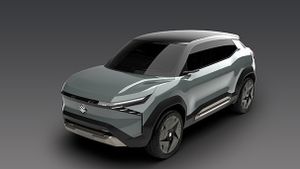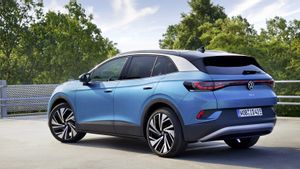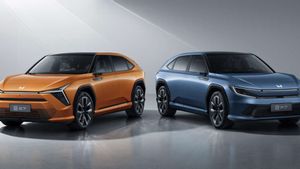JAKARTA - Japan's automotive giant, Nissan, just recorded an extraordinary achievement last June. Their factory in Yokohama, Japan, has succeeded in producing 40 million units of vehicle engines.
The manager of the Yokohama Factory, Tamiyo Wada, revealed that this achievement cannot be separated from consumer confidence in Nissan products around the world, which allows this factory to generate as many as 40 million units of machines.
"In the future, the Yokohama Factory will continue to provide high-quality innovative technology and services to our customers," said Wada in a statement from the company, Wednesday, July 19.
The Yokohama plant has been operating since 1935, just two years after the founding of Nissan. In 1976, they had reached production of 10 million machines, then increased to 20 million in 1986, and reached 30 million engines in 1997.
Welcoming the 90th anniversary of Nissan's presence, the Yokohama Factory is committed to continuing its innovation tradition by using the latest technology to present the latest models.
In addition to producing gasoline-fueled engines, the plant will focus on developing powertrains that will be implemented globally, including the development of all-solid-state batteries scheduled for next year.
The Yokohama factory is known for its contribution in producing essential engines for Nissan vehicles. For example, in 1979, they released an L20ET engine, a turbocharged engine for the first passenger car. This machine is capable of generating 143 dk and is used in models such as Leopard, totaling, Gloria, and iconic model, Fairldy Z.
In 1983, this factory also managed to produce VG machines as V6 engines for mass production cars. Some of the famous cars using VG engines including Nissan Bluebird, Nissan 200Z, Nissan Terrano, and Nissan 300ZX.
另请阅读:
The Yokohama factory also contributed to developing the VR38DETT machine, a machine that is at the heart of the GT-R model specially assembled by takumi craftsmen. Furthermore, in 2017, the factory succeeded in creating VC Turbo, the world's first mass production machine that used variable compression ratio technology.
In addition to developing gasoline-powered engines, the factory also played a role in the development of the Leaf electric car in 2010 by producing electric motors and e-Power technology.
The English, Chinese, Japanese, Arabic, and French versions are automatically generated by the AI. So there may still be inaccuracies in translating, please always see Indonesian as our main language. (system supported by DigitalSiber.id)













